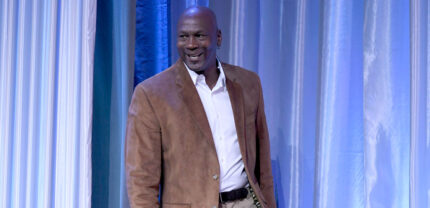The number of unemployed Black men in the U.S. has grown so much that it’s costing Black communities $50 billion in income every year, a study published last week revealed.
The study found that there’s an employment gap of about 1.4 million jobs between Black men and their Asian, Hispanic and white counterparts. Black men are absent from hundreds of thousands of jobs in part because they have a higher rate of being in prison, being killed or simply being looked over for positions, said Algernon Austin, who authored the study published by the Center for Economic and Policy Research.

“Black people need to take this report and take it to their elected official and say ‘You need to do more because you don’t fully realize how big this problem is,’ ” Austin told Finurah. “I’m hoping that this work serves to inspire people, and, frankly, particularly Black men.”
Using employment data from 2014, Austin’s study tallied Black men between ages 25 and 54 and examined how many of them were employed nd then compared that to the total Black male population. He concluded that Black men would have to nab about 947,000 jobs that year to equal the rate other men are working relative to their population. Adding those jobs would have generated billions of dollars in wages funneled into Black communities, the study found.
Although the findings come from 2014 data, Austin said the takeaways can be applied to 2021 and beyond. Black neighborhoods with a large infusion of income from men working would see lower crime rates, longer surviving small businesses and higher educational attainment among children, Austin said.
“If we can get that $50 billion in, not only are people’s lives made better today, but the next generation is going to be better off,” he said.
Pandemic Problems
Austin’s research lands at a time when Black Americans are still crawling out of the economic rubble from the coronavirus pandemic. At the height of the pandemic, many Black Americans were forced to shutter their small businesses and take layoffs from their employers. That meant several Black families went weeks without an income to keep bills paid. Black Americans had the highest unemployment rate throughout the pandemic, government data shows.
The global health crisis financially hurt Black employees and employers alike. Although Black entrepreneurship exploded in major hubs like Atlanta, Houston, Miami and New York, many Black business owners were shut out from receiving federal pandemic aid designed to keep their firms afloat.
The Black unemployment rate, as of November, has fallen back to its pre-pandemic levels (between 6 and 7 percent), according to U.S. Labor Department data, but Black men still hold the highest unemployment rate of any other demographic.
Black men have unique challenges when trying to land a job and they must play an outsized role in helping improve their unemployment rate, Austin said.
“The problem won’t be solved by Black men alone, but it won’t be solved if Black men aren’t more engaged in advocating for Black men,” he said.
The Fix Is In
Perhaps one way to fix this issue is for federal lawmakers to launch a new subsidized jobs program, Austin suggested. In the 1930s, the federal government funded jobs in the fine arts, highway construction and at the national parks.
A new program could be somewhat similar but would need to be targeted in a way that reaches a large swath of Black men, Austin surmised. The program would also need to focus on cities like Detroit and Washington, D.C. — areas that Austin said should be viewed as economically depressed.
“It can be useful to think about them as depressed because then we should be putting in place tools we used during the Great Depression to solve the joblessness problem,” Austin said.
Another possible fix is introducing Black men to the world of work at a much younger age by expanding summer youth employment programs, Georgetown University public policy professor Harry Holzer stated in a March research paper for the Brookings Institution.
Holzer also suggested reducing the incarceration rate, pumping more dollars into pre kindergarten in Black neighborhoods and raising the federal minimum wage would help boost Black male employment.
Those options come at a high cost, Holzer said, but the employment gap “between men and other groups should not be tolerated or accepted as inevitable.”
Holzer concluded, “Policy choices are available that can enable us to make progress on this issue and it is imperative that we explore and implement them.”




